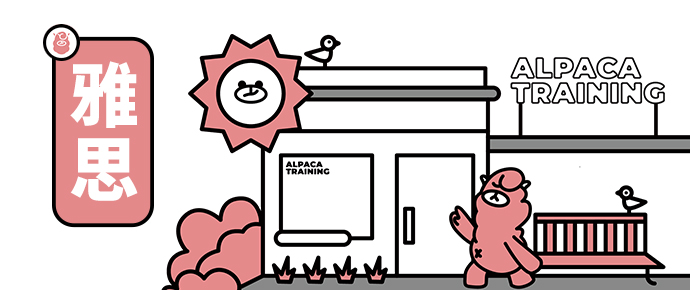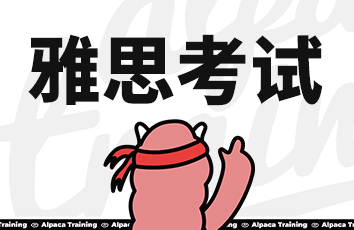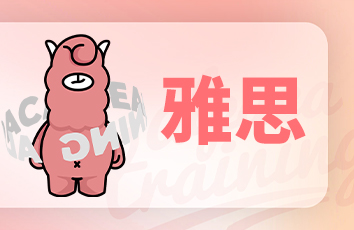雅思听力考试共有4个部分,每个部分10小题,一共40小题。下文羊驼小编整理了1月雅思考试听力部分可能出现的题目/题型以及答案(listening),希望能对各位开始有所帮助。

Listening
Section 1
Questions 1-4
Choose the correct letter, A, B, or C.
1 What is the principal doing at the end of the term?
A Starting another job
B Going to Spain
C Retiring
2 According to the receptionist, from whom is feedback most important for new teachers?
A Their students
B The principal
C Other teachers
3 What do a lot of people do who take an evening class?
A Make new friends there
B Not finish the course
C Find better jobs afterwards
4 What percentage of students’ fees do teachers pay for most classes they enroll in at the college?
A 70
B 50
C 10
Questions 5-10
Complete the table below.
Write ONE WORD OR A NUMBER for each answer.
Teacher | Class | Days | Location | Other information |
Sally Burton | Working with (5)...................... | In her studio | Number of students per class: (6)...................... | |
Kostia Lebedev | Watercolour Painting | (7)...................... and Fridays | At college in Room 14 | Class includes excursions to the (8)...................... and an end-of-term (9)...................... |
Amal Nouri | Spanish | Wednesdays | Her phone number: (10)...................... |
Section 2
Questions 11-14
Choose FOUR answers from the box below, and write the correct letter, A-F, next to Questions 11-14.
A Eliezer Montefiore B Grace Cossington-Smith C Paul Cezanne D Arthur Boyd E Wendy McEwen F A voluntary guide |
11 He/She trains guides. ......................
12 He/She was the gallery’s first director. ......................
13 The gallery paid a lot for his/her work. ......................
14 He/She must not be diverted by trivial questions. ......................
Questions 15-20
Answer the questions below.
Write NO MORE THAN THREE WORDS AND/OR A NUMBER for each answer.
15 What is the process of giving the same information about the same artworks?
16 How long is each guided tour?
17 About how many artworks do guides discuss in a tour?
18 What do schoolchildren and international visitors expect to see at the gallery?
19 When a member of the public is talking about an artwork, why might a guide intervene?
20 Which language do two of the new volunteers speak?
Section 3
Questions 21-24
Choose the correct letter, A, B, or C.
21 The woman, Sovy, would like to study
A History.
B Development.
C Tourism.
22 Sovy works as
A a volunteer.
B a librarian.
C a Russian teacher.
23 Sovy has
A a BA only.
B a BA and part of an MA.
C a BA and an MA.
24 Sovy thinks the scholarship selectors
A favour people from big cities.
B favour people from the provinces.
C award scholarships all around the country.
Questions 25-27
Complete the sentences below.
Write ONE WORD ONLY for each answer.
25 Sovy feels ...................... of her background.
26 Sovy doubts the selectors would be interested in her .......................
27 Sovy thinks showing her passion for ....................... might help during her interview.
Questions 28-30
Choose THREE letters, A-F.
Which THREE relate to Vibol?
A He is single.
B He opened a restaurant.
C He travelled around Australia.
D He studied in Adelaide.
E He did a Master’s in International Law.
F He wants an easy life.
Section 4
Questions 31-35
Choose the correct letter, A, B, or C.
31 What is the purpose of the lecture?
A To get students to recycle smartphones
B To let students know more about e-waste
C To encourage students to develop an app
32 The lecturer talks about her family’s behaviour because it is
A typical.
B exceptional.
C ideal.
33 According to the lecturer, an e-waste recycler in the US receives a ........... amount of cash.
A very small
B small
C moderate
34 According to the EPA, only ........... of e-waste sent for recycling is actually recycled.
A 8%
B 13%
C 20%
35 European countries signed the Basel Convention,
A and greatly reduced their e-waste.
B but still send e-waste abroad illegally.
C so local recyclers have enough e-waste to process.
Questions 36-40
Complete the sentences below.
Write NO MORE THAN TWO WORDS OR A NUMBER for each answer.
36 An average smartphone has about ....................... different chemical elements inside.
37 Toxins from burnt electronic devices find their way into the ........................
38 Currently, the city of Guiyu, in ......................., deals with the most e-waste.
39 The EPA predicts that by ......................., global e-waste will reach 100 million metric tons a year.
40 Only a tiny amount of recycled e-waste is used to make more ....................... products.
1月雅思听力预测题参考答案
1. C 2. A 3. B 4. C 5. Wool 6. 7/seven 7. Tuesdays 8. river 9. exhibition 10. 0212 064 11. E
12. A 13. C 14. F 15. Standardised/Standardized delivery 16. 1/One hour 17. 14/Fourteen
18. Iconic works 19. To alter misconceptions//To move on 20. Japanese 21. B 22. A 23. B
24. A 25. proud 26. politics 27. development 28-30. BDF (in any order) 31. B 32. A 33. A
34. C 35. B 36. 60/sixty 37. food chain 38. China//Guangdong Province 39. 2020 40. electronic




